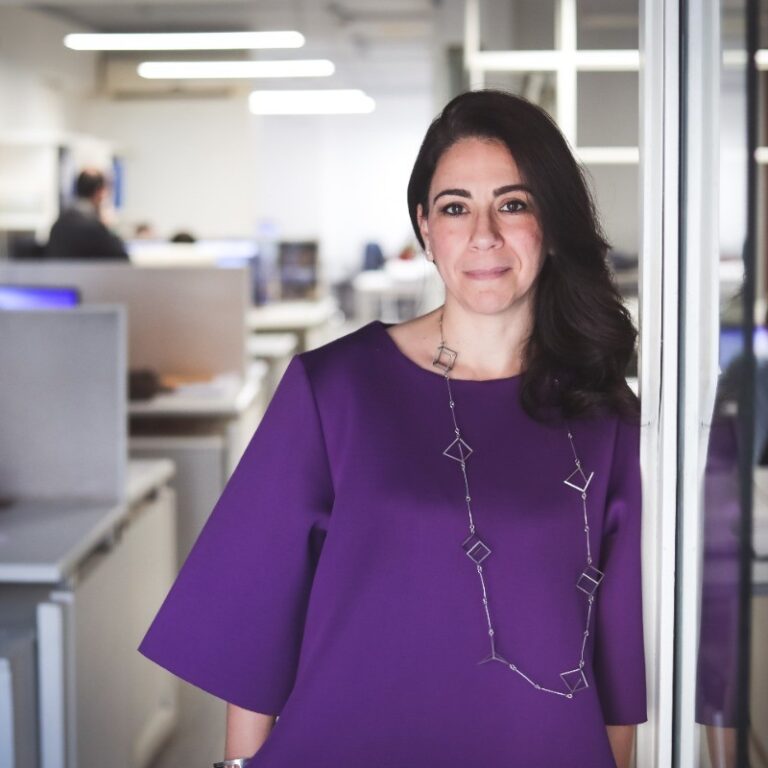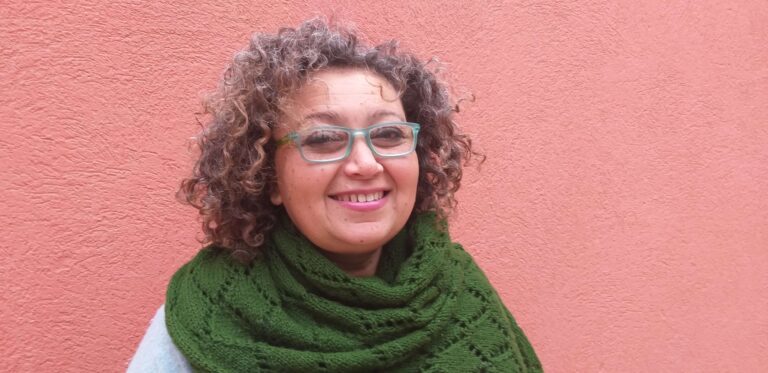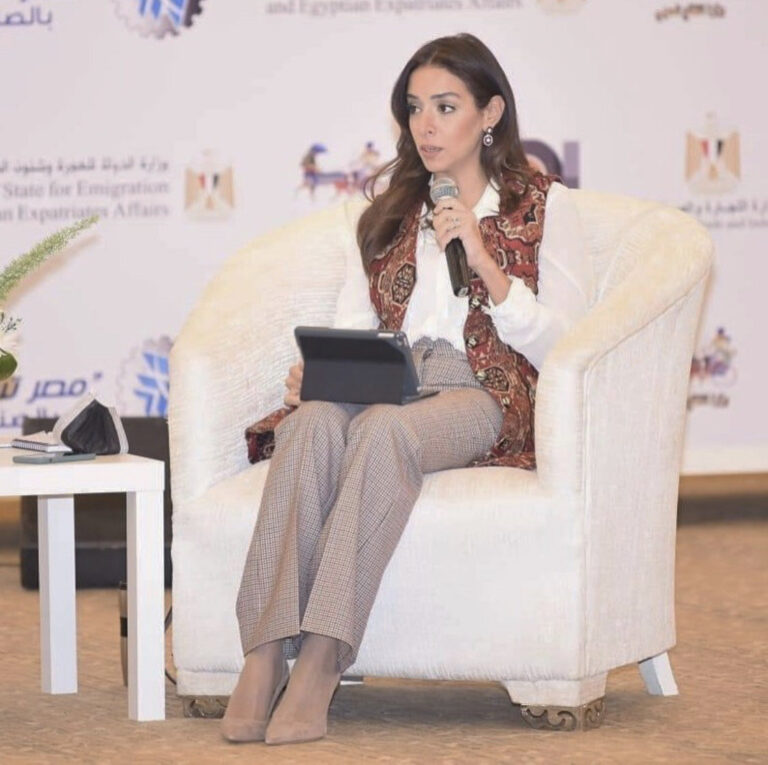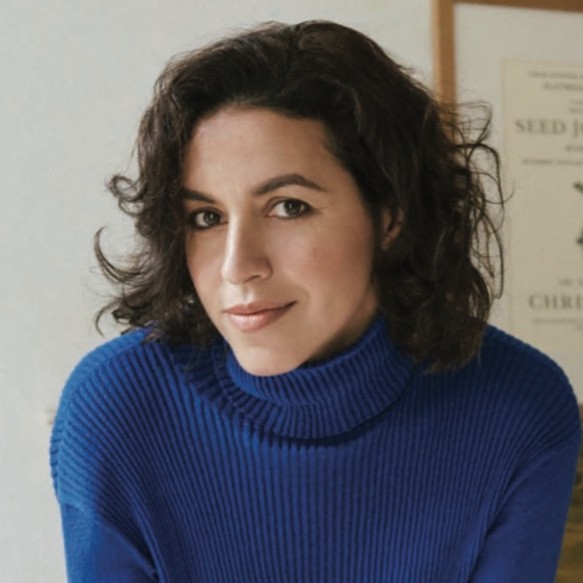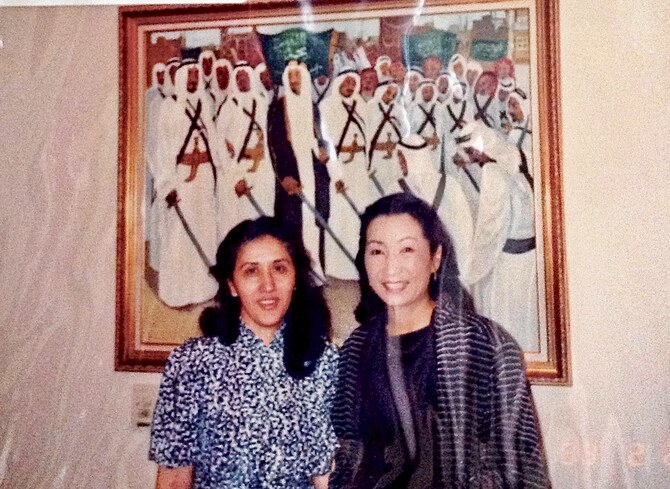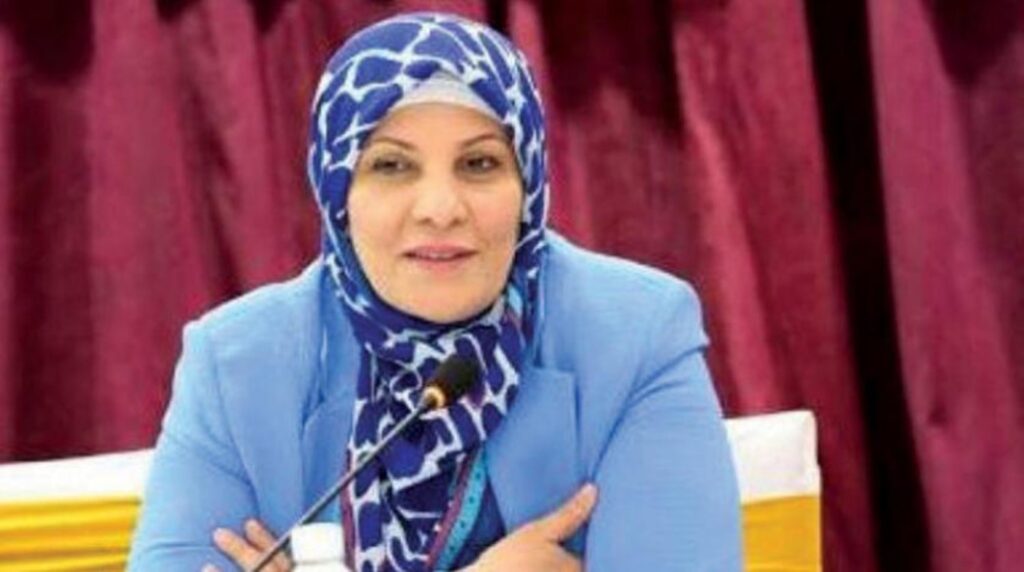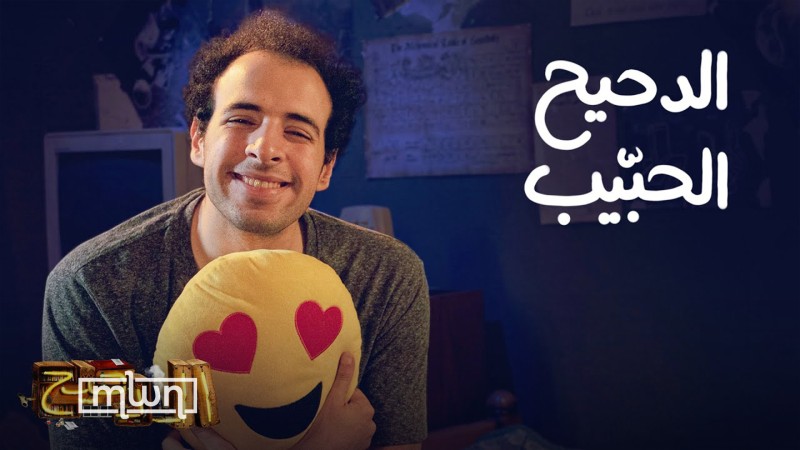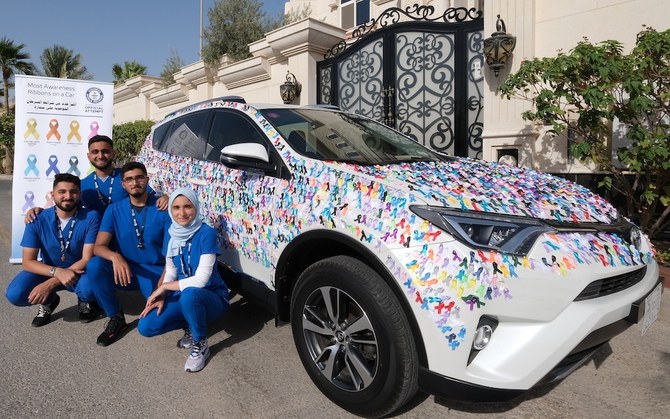After a revolt in 1871, French colonial authorities in Algeria exiled 2,000 insurgents to New Caledonia. Now their descendants are seeking to reclaim their heritage.
When Christophe Sand landed in Algiers for the first time in 2005 and saw the city’s Casbah surrounded by clouds, he started to cry.
“I felt this pain I’d never felt before, that was unfamiliar to me,” he said. “I wanted to scream.”
Sand grew up 11,000 miles from Algeria in New Caledonia, a French territory in the South Pacific that is, culturally and geographically, worlds away from the North African city of Algiers. For most of his life, Sand’s family history remained a mystery to him. While Sand had been told his great-grandfather was a convict from Algeria, his grandmother refused to speak about him and her Algerian heritage, changing her name from “Yasmina” to “Mina” to create distance between herself and her Arab roots.
“She never embraced her origins,” Sand said, noting that he never fully understood how his family had ended up in New Caledonia.
As he got older, Sand set out to uncover the truth about his Algerian ancestors. What he discovered brought to light a complex colonial history that unveils how far the French colonial state went to protect its empire — and the lasting impact it has had on communities around the world.
In January 1871, 40 years after the French seized control of Algeria, the Kabyle people, a Amazigh ethnic group, banded together to lead what was at the time, the biggest revolt against French occupation in Algerian history.
Kabyle leaders believed it was the opportune moment to strike against French colonial powers. France had just lost a war against Prussia, which had led to the collapse of the French government, and was more vulnerable after its defeat. The revolt spread rapidly, with 250 tribes in the rebels’ ranks.
But the French authorities responded more brutally than expected, destroying entire villages and killing tens of thousands of people, both rebels and civilians. After a year of fighting, the revolt was definitively quashed in 1872. The French authorities seized over 450,000 hectares of land that it distributed to French settlers and quickly put in place trials to prosecute anyone who had rebelled against the French state.
Over 2,000 insurgents, among them leaders of the revolt, faced trial in Constantine where they were presented not as anti-colonial leaders but as petty criminals. Because most of the men hailed from noble families, however, the French were wary of sentencing them to death. Instead, they decided to exile the men to the farthest place imaginable: New Caledonia.
Sand’s great-grandfather was one of these leaders. Along with more than 2,000 other men, he was exiled to New Caledonia in the late 19th century to work in labor camps. The men were sent to Bourail, a place chosen to be a first colony for prisoners. Archives reveal that throughout this journey, the Algerian men continued to resist colonial forces, giving particular importance to their faith: Even during trying passages at sea, they still dutifully observed the fast of Ramadan and continued following certain dietary restrictions, abstaining from the consumption of pork and alcohol.
New Caledonia wasn’t only a place for political prisoners from France’s colonies, the French exiled convicts from the mainland, too. When the men landed on New Caledonia’s shores, they were not allowed to practice Islam, had to adopt Christian names and were forced to marry exiled French women or daughters of French exiles. The colonial administration was hoping that through these marriages, they would create Christian families that conformed to their idea of settlers. The reverse happened: French women took on Algerian traditions and kept alive their heritage, learning how to cook Algerian food and teaching it to following generations. These families cultivated date palm trees as they did back in Algeria. They gave their children Muslim names, in spite of a prohibition to do so by the colonial administration. In 1936, when the ban was lifted, many finally used their Arab names in public.
But for all the traditions that were passed down, many were not. Over time, their languages were forgotten and, critically, so was the history of their ancestors and their rebellion against the French colonial state. Rather than carrying forth the anti-colonial legacies of their ancestors, their descendants became defenders of colonialism in New Caledonia.
At first, many Algerian men had no choice but to help French authorities suppress revolts by the local Kanak — the Indigenous Melanesian inhabitants of New Caledonia — in order to gain back their freedom. But over time, their participation was not simply forced; in some cases it was voluntary. The descendants who were assimilated into French settler society played a key role in the repressive apparatus of the colonial state; it was an Algerian prisoner who killed the Kanak chief Bwëé Noël Pwatiba, an important leader of the 1917 Kanak revolt. Algerian prisoners settled on lands captured by French authorities in the aftermath of Indigenous insurrections. This alliance — both forced and later voluntary — with the French colonial authorities meant that for most of their history in New Caledonia, these descendants were not seen as victims of the same colonial force but instead their helping hand.
Today, 15,000 descendants live in New Caledonia, with the majority residing in the town Nessadio Bourail. Until recently, however, many descendants did not know or share their ancestors’ history.
This was the case for Sand’s grandmother, who believed for most of her life that her grandfather was a criminal. “In New Caledonia, the descendants of these communities had their cultural memories eradicated,” Sand said.
As Sand got older, however, he became more curious about his family’s history. He went as far as traveling to the archives of overseas territories in Aix-en-Provence, France, where he discovered that his great-grandfather was not a criminal but an anti-colonial leader. “My life changed that day, when I realized he was a revolt leader,” Sand said.
At the time, Sand thought the discovery of these archives was the end of his journey to better understand his family’s origins. Then, in the early 2000s, documentary filmmakers came to New Caledonia to interview the descendants of the revolt leaders. They brought a book with them about those exiled from Algeria. In it, Sand found the forgotten story of his great-great-grandmother Tessadit who, upon learning her son would be exiled to New Caledonia, ran down to the port of Algiers to beg a soldier to let her say goodbye one last time. “They gave her 30 seconds,” Sand said. “That’s inhumane.”
When the documentary filmmakers arrived in New Caledonia, elders shared stories passed down to them from their relatives for the first time. “It was a real tipping point for the community,” Sand said, who noted most young people had never heard these stories from elders before. “When the elders got in front of the camera, they let it all come out,” he said. “It was as if they had been carrying knots in their stomachs since childhood that were finally coming out.”
The documentary, Les témoins de la mémoire, was hugely popular when it premiered in 2004, not only with descendants but also with Algerians themselves, who viewed these men as the leaders who put the country on track to eventually achieve independence in 1962.
“We did not know the history, we did not know people were uprooted like that,” said Myriam Moussa, 47, who lives in Algiers. “I had tears in my eyes when I watched the documentary and spoke about it extensively with friends and family.”
Sand, who featured in the film, didn’t realize how popular the documentary was in Algeria until he went to visit in 2005. On the flight over, other passengers recognized Sand and told him: “Welcome, you are at home here.” When he got off the plane, people were waiting for him at the airport to see with their own eyes if their cousin from New Caledonia was coming home.
In Algeria, Sand went to visit his great-grandfather’s village and, for the second time on his trip, began sobbing when the car pulled into the village. People had gathered to meet Sand, many of whom had traveled from afar, to welcome him back home. They offered him dates and goat milk and commented on how, despite the generations of separation, he still bore a resemblance to his relatives.
In the village, Sand visited the small home where his great-grandfather was born and touched the floor where, as per tradition, his umbilical cord was buried. When Sand emerged from the house, onlookers told him: “Son, your face has changed.”
Since the documentary aired, many descendants say the way they view themselves and their identity has changed.
Prior to the film coming out, there was some awareness about the history of North Africans in New Caledonia. The Association of Arabs and Arab Friends, for instance, was created in 1969 in an effort to bring people with shared history together. But like Sand’s grandmother, many descendants spent their lives feeling shame about who they were and what their ancestors represented, facing racism when trying to integrate into the white settler community. The documentary and learning their ancestors’ history changed that.
The Algerian community in New Caledonia, however, is far from homogenous: While some people now embrace their Algerian cultural heritage, others do not, remaining profoundly Caledonian. Many blend their multiple cultures and heritages together. Sand, for instance, continues to identify as Catholic but observes Ramadan.
“We are not a diaspora, the link was too cut for too long for us to be one,” Sand said. But after several years of feeling shame about their heritage, many people are reclaiming it and identifying as Arab. Sand even named his daughter Tessadit, after his great-great-grandmother who forced her way past French soldiers to say goodbye to her son.
Celebrating their ancestors’ anti-colonial struggle is also complicated for many descendants, whose families have actively supported the French colonial state in New Caledonia and the oppression of the local Kanak people.
Sand, who is now dedicated to popularizing this history, hopes that by sharing it more widely and showing that both Algerians and the Kanak were oppressed by the same colonial force, he can help ease tensions between the two communities. Though their histories are different, Sand said, the legacies of French colonialism, dislocation and oppression have similarly afflicted both peoples’ cultures.
In 2013, the Algerian government invited the descendants, including Sand and his mother, to visit Algeria and celebrate the 50th anniversary of the country’s independence, for which their ancestors fought. The delegation from New Caledonia included 30 Algerian descendants as well as 17 Kanaks. “It was the first time we could recognize a shared history and point of view,” Sand said. “We came as a country, not just as descendants.”
source/content: newlinesmag.com /chahrazade douah & melissa godin /(headline edited)
______________
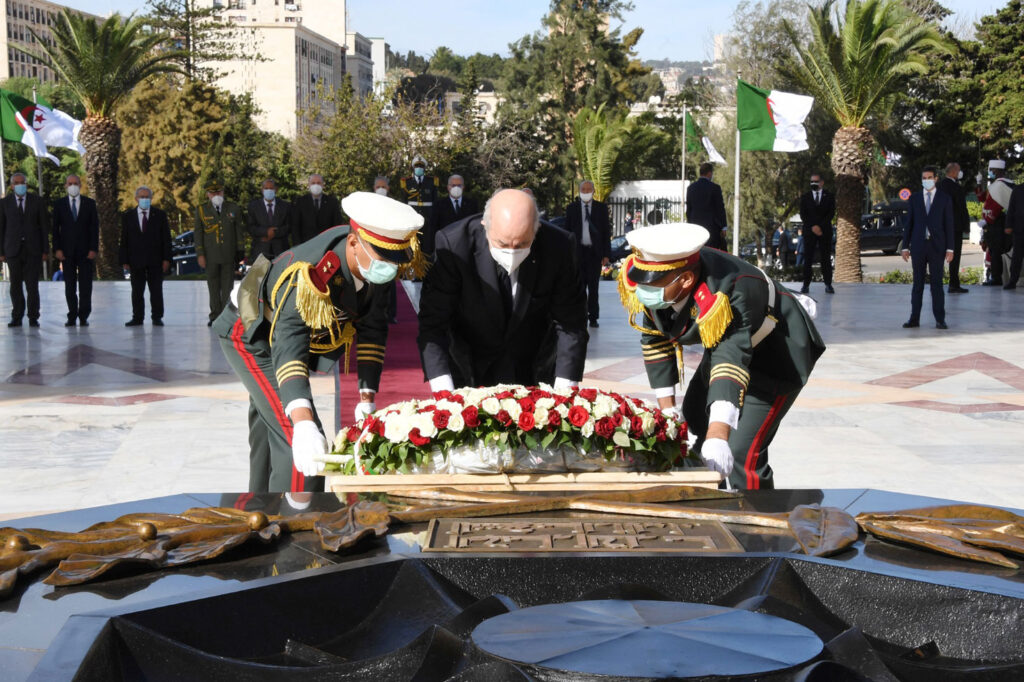
President of Algeria, Abdelmadjid Tebboune lays a wreath at the Soldiers’ Monument during a celebration last November marking the anniversary of the outbreak of the liberation revolution against French colonial rule / Algerian Presidency / Anadolu Agency via Getty Images
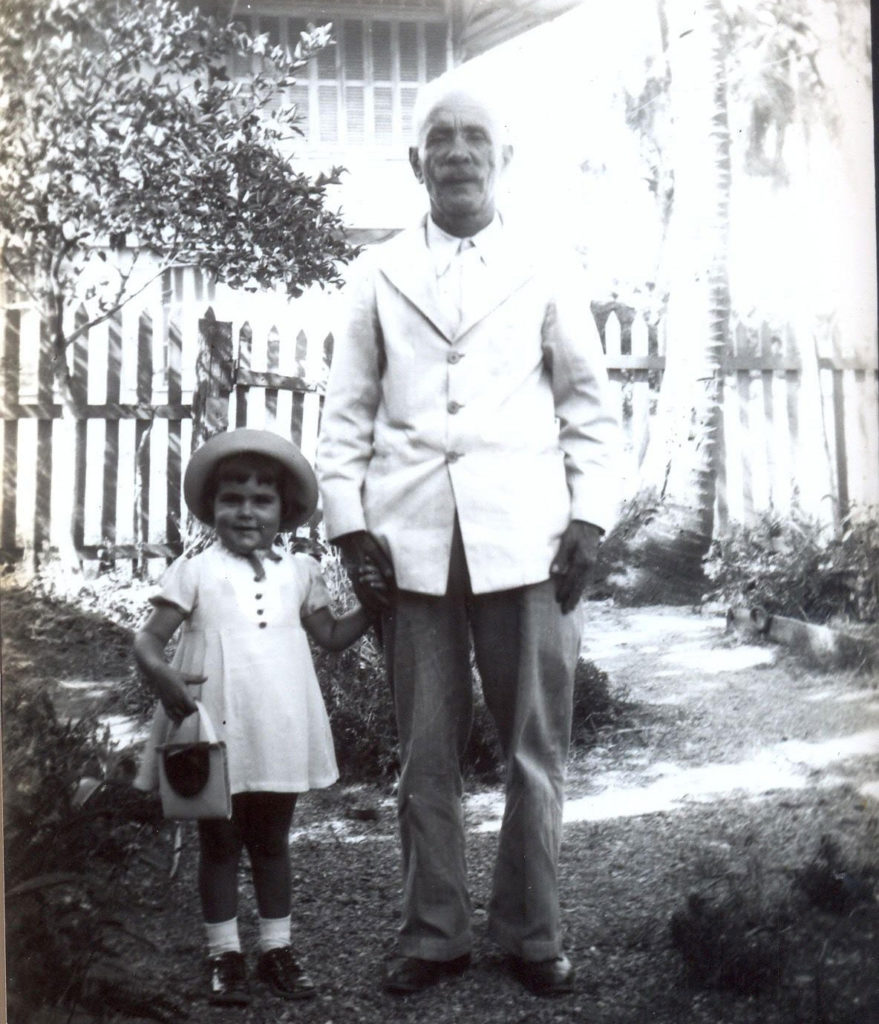
Christophe Sand’s great-grandfather / Courtesy of Christophe Sand
____________
ALGERIA

